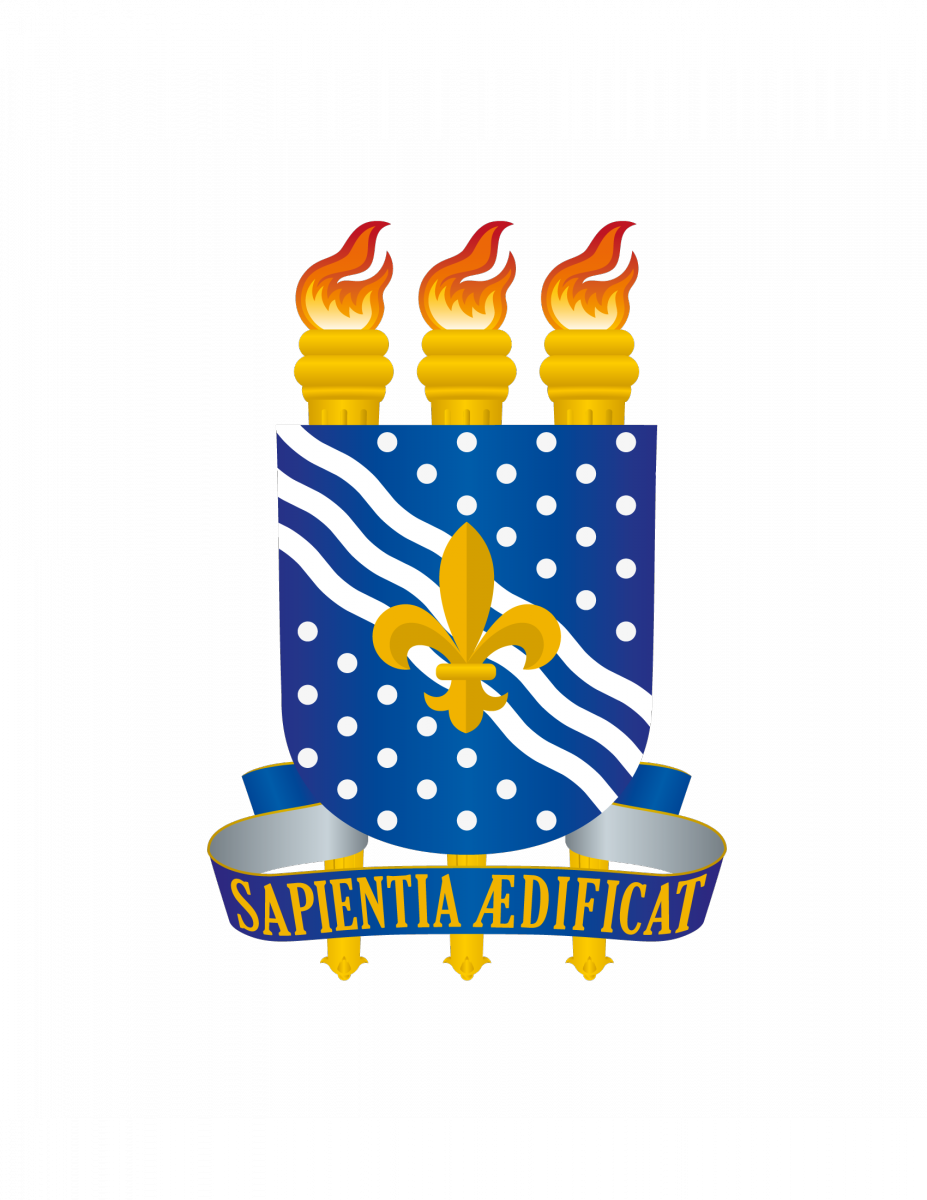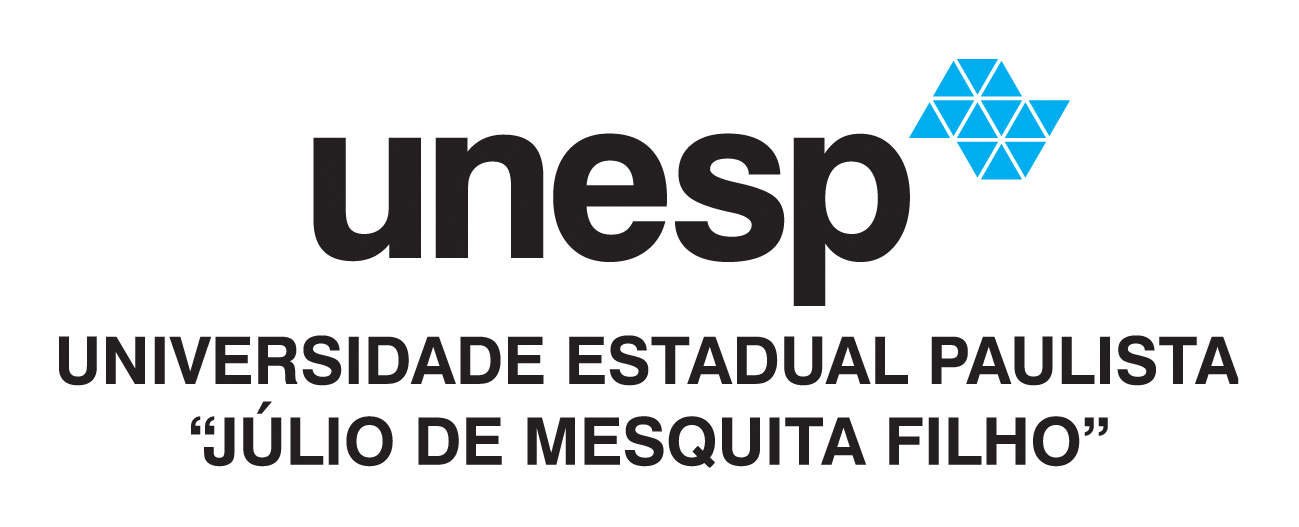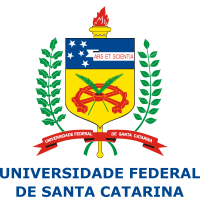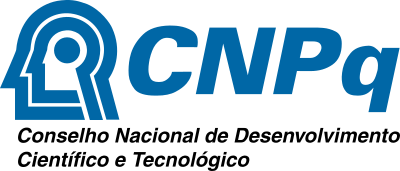Information, Data and Technology
Guilherme Ataíde Dias
Federal University of Paraíba (UFPB) | guilhermeataide@ccsa.ufpb.br | https://orcid.org/0000-0001-6576-0017 | https://lattes.cnpq.br/9553707435669429
Undergraduate in Computer Science from the Federal University of Paraíba UFPB Campus II (1990), Bachelor in Law by the University Center of João Pessoa UNIPE (2010), Master in Organization & Management by Central Connecticut State University? CCSU (1995), PhD in Information Science (Communication Sciences) at the University of São Paulo? USP (2003) and Post-Doctor by UNESP (2011). He is currently Associate Professor III at the Federal University of Paraíba, where he holds a degree in Information Science. He is involved with Post-Graduation through the Post-Graduate Program in Information Science and Postgraduate Program in Administration, both of UFPB. Has research interest in the following themes: Knowledge Representation; Information Architecture; Information security; Information and Communication Technologies; Health Information; Social networks; Free software; Law, Ethics and Intellectual Property in Cyberspace; Scientific Data Management; Legal Information; He is currently Research Productivity Scholar (PQ) at CNPq.
Moisés Lima Dutra
Federal University of Santa Catarina (UFSC) | moises.dutra@ufsc.br | https://orcid.org/0000-0003-1000-5553 | https://lattes.cnpq.br/1973469817655034
Professor, Federal University of Santa Catarina, Department of Information Science. PhD in Computing from the University of Lyon 1, France (2009). Master in Electrical Engineering, subarea Automação e Sistemas (2005) and Bachelor in Computing (1998) from the Federal University of Santa Catarina. His current lines of research are related to Applied Artificial Intelligence (Machine Learning, Deep Learning, Semantic Web, Linked Data) and Data Science (Big Data, IoT). It is linked to the research group ITI-RG (Intelligence, Technology and Information - Research Group).
Fábio Mosso Moreira
São Paulo State University (UNESP) | fabio.moreira@unesp.br | https://orcid.org/0000-0002-9582-4218 | https://lattes.cnpq.br/1614493890723021
Undergraduate degree in Business Administration from the Faculty of Sciences and Engineering (UNESP / Tupã). Master degree in Information Science - (UNESP / Marília). PhD student in the Graduate Program in Information Science (UNESP / Marília). Member of the Research Group - GPNTI (UNESP / Marília) and GPTAD (UNESP / Tupã). Collaborator of the Project Digital Skills for Family Farming (CoDAF). Content editor of the Electronic Journal Digital Skills for Family Farming (RECoDAF). Professional Technical Skill in Informatics from ETEC Massuyuki Kawano - Centro Paula Souza de Tupã. Professional experience in the ERP Information Systems for Logistics Operations. Works with research in Information Science, studying the use of digital resources for access to government data of Public Policies in the context of the small farmer.
Fernando de Assis Rodrigues
Federal University of Pará (UFPA) | fernando@rodrigues.pro.br | https://orcid.org/0000-0001-9634-1202 | https://lattes.cnpq.br/5556499513805582
Professor at Federal University of Pará. Ph.D. and M.S. in Information Science, Post-bachelor in Internet Systems and Bachelor of Science in Information Systems. Most of his experience is based on works developed as a Full Stack Developer and Database administrator, especially with Python, Java and PHP programming languages, as well as MySQL, MariaDB, SQLite3 and PostgreSQL databases. Also, he lectured classes related to the context of Computer Science to undergraduate and graduate students at UNESP. Currently, He workd as a postdoc researcher at UNESP labs, working in data studies.
Ricardo César Gonçalves Sant'Ana
São Paulo State University (UNESP) | ricardo.santana@unesp.br | https://orcid.org/0000-0003-1387-4519 | https://lattes.cnpq.br/1022660730972320
Associate Professor at the Paulista State University - UNESP, Faculty of Sciences and Engineering - FCE, Campus de Tupã, on an exclusive dedication, where he is Chairman of the Monitoring and Evaluation Committee of the Graduate Courses - CAACG, Local Coordinator of the Center for Studies and Pedagogical Practices - CENEPP and Local Ombudsman. Professor of the Post-Graduate Program in Information Science of the Paulista State University, Marília Campus. Graduated in Mathematics and Pedagogy, Master in Information Science (2002), Doctorate in Information Science (2008) and Freelance in Management Information Systems by UNESP (2017). He has specialized in Object Orientation (1996) and Management of Information Systems (1998). Ad hoc advisor of periodicals and development agencies. Member of the Research Group - New Technologies in Information GPNTI-UNESP. Has experience in the area of ??Computer Science, currently conducts research focused on: information science and information technology, investigating issues related to the Data Life Cycle, Transparency and Information Flow in Productive Chains. He worked as a professor at Faccat Faculdade de Ciências Contábeis e Administração de Tupã, where he coordinated a course of Administration with Qualification in Systems Analysis for ten years and the course of Licenciatura in Computing. He worked in the private sector as a consultant, integrator and researcher of new information technologies from 1988 to 2004.
Organizators
Guilherme Ataíde Dias
Federal University of Paraíba (UFPB) | guilhermeataide@ccsa.ufpb.br | https://orcid.org/0000-0001-6576-0017 | https://lattes.cnpq.br/9553707435669429
Undergraduate in Computer Science from the Federal University of Paraíba UFPB Campus II (1990), Bachelor in Law by the University Center of João Pessoa UNIPE (2010), Master in Organization & Management by Central Connecticut State University? CCSU (1995), PhD in Information Science (Communication Sciences) at the University of São Paulo? USP (2003) and Post-Doctor by UNESP (2011). He is currently Associate Professor III at the Federal University of Paraíba, where he holds a degree in Information Science. He is involved with Post-Graduation through the Post-Graduate Program in Information Science and Postgraduate Program in Administration, both of UFPB. Has research interest in the following themes: Knowledge Representation; Information Architecture; Information security; Information and Communication Technologies; Health Information; Social networks; Free software; Law, Ethics and Intellectual Property in Cyberspace; Scientific Data Management; Legal Information; He is currently Research Productivity Scholar (PQ) at CNPq.
Moisés Lima Dutra
Federal University of Santa Catarina (UFSC) | moises.dutra@ufsc.br | https://orcid.org/0000-0003-1000-5553 | https://lattes.cnpq.br/1973469817655034
Professor, Federal University of Santa Catarina, Department of Information Science. PhD in Computing from the University of Lyon 1, France (2009). Master in Electrical Engineering, subarea Automação e Sistemas (2005) and Bachelor in Computing (1998) from the Federal University of Santa Catarina. His current lines of research are related to Applied Artificial Intelligence (Machine Learning, Deep Learning, Semantic Web, Linked Data) and Data Science (Big Data, IoT). It is linked to the research group ITI-RG (Intelligence, Technology and Information - Research Group).
Fábio Mosso Moreira
São Paulo State University (UNESP) | fabio.moreira@unesp.br | https://orcid.org/0000-0002-9582-4218 | https://lattes.cnpq.br/1614493890723021
Undergraduate degree in Business Administration from the Faculty of Sciences and Engineering (UNESP / Tupã). Master degree in Information Science - (UNESP / Marília). PhD student in the Graduate Program in Information Science (UNESP / Marília). Member of the Research Group - GPNTI (UNESP / Marília) and GPTAD (UNESP / Tupã). Collaborator of the Project Digital Skills for Family Farming (CoDAF). Content editor of the Electronic Journal Digital Skills for Family Farming (RECoDAF). Professional Technical Skill in Informatics from ETEC Massuyuki Kawano - Centro Paula Souza de Tupã. Professional experience in the ERP Information Systems for Logistics Operations. Works with research in Information Science, studying the use of digital resources for access to government data of Public Policies in the context of the small farmer.
Fernando de Assis Rodrigues
Federal University of Pará (UFPA) | fernando@rodrigues.pro.br | https://orcid.org/0000-0001-9634-1202 | https://lattes.cnpq.br/5556499513805582
Professor at Federal University of Pará. Ph.D. and M.S. in Information Science, Post-bachelor in Internet Systems and Bachelor of Science in Information Systems. Most of his experience is based on works developed as a Full Stack Developer and Database administrator, especially with Python, Java and PHP programming languages, as well as MySQL, MariaDB, SQLite3 and PostgreSQL databases. Also, he lectured classes related to the context of Computer Science to undergraduate and graduate students at UNESP. Currently, He workd as a postdoc researcher at UNESP labs, working in data studies.
Ricardo César Gonçalves Sant'Ana
São Paulo State University (UNESP) | ricardo.santana@unesp.br | https://orcid.org/0000-0003-1387-4519 | https://lattes.cnpq.br/1022660730972320
Associate Professor at the Paulista State University - UNESP, Faculty of Sciences and Engineering - FCE, Campus de Tupã, on an exclusive dedication, where he is Chairman of the Monitoring and Evaluation Committee of the Graduate Courses - CAACG, Local Coordinator of the Center for Studies and Pedagogical Practices - CENEPP and Local Ombudsman. Professor of the Post-Graduate Program in Information Science of the Paulista State University, Marília Campus. Graduated in Mathematics and Pedagogy, Master in Information Science (2002), Doctorate in Information Science (2008) and Freelance in Management Information Systems by UNESP (2017). He has specialized in Object Orientation (1996) and Management of Information Systems (1998). Ad hoc advisor of periodicals and development agencies. Member of the Research Group - New Technologies in Information GPNTI-UNESP. Has experience in the area of ??Computer Science, currently conducts research focused on: information science and information technology, investigating issues related to the Data Life Cycle, Transparency and Information Flow in Productive Chains. He worked as a professor at Faccat Faculdade de Ciências Contábeis e Administração de Tupã, where he coordinated a course of Administration with Qualification in Systems Analysis for ten years and the course of Licenciatura in Computing. He worked in the private sector as a consultant, integrator and researcher of new information technologies from 1988 to 2004.
Digital Humanities: visualization of scientific production
Pages: 381 - 396
Authors
Mirelys Puerta Diaz
São Paulo State University (UNESP) | mireblue18@gmail.com | https://orcid.org/0000-0002-2312-2540 | https://lattes.cnpq.br/4493369991075218
PhD student at the Post-Graduate Program in Information Science (PPGCI) of UNESP (Campus Marília), in the line of "Information and Technology", with research developed on institutional repositories. He holds a degree in Librarianship and Information Science - University of Havana (2011) and a Master's degree in Library Science and Information Science - University of Havana (2016). He is currently assistant professor - University of Havana. He worked as a senior specialist in the Central Library "Ruben Martínez Villena" (University of Havana) in the area of development and technology between 2011 and 2018. He worked as a specialist in the projects of Fototeca, the library management system ABCD and web site development. Has experience in the area of campaigns in social networks and development of informational competence.
Edgar Bisset Alvarez
Federal University of Santa Catarina (UFSC) | edgar.bisset@ufsc.br | https://orcid.org/0000-0002-5388-5944 | https://lattes.cnpq.br/6259487897392078
PhD in Information Science at the Post-Graduate Program in Information Science of Universidade Estadual Paulista (UNESP), with a sandwich period at the University of Murcia / Spain. Master's Degree in Library Science and Information Science - University of Havana (2012) and Undergraduate in Scientific-Technical Information and Librarianship - University of Havana (2007). He teaches in the undergraduate and postgraduate courses of the Department of Information Science at the Center for Educational Sciences, Federal University of Santa Catarina. He was Assistant Professor at the Faculty of Social Communication and Principal Specialist at the Information Department of the University of Havana, Coordinator of the Library Network at the University of Havana. He belongs to the Cuban Association of Library Science (ASCUBI), also to the Working Group GT-8 Information and Technology of the National Association of Research and Graduate in Information Science (ANCIB). Participates as Co-Leader of the Research Group on Information Philosophy: reflections and reflections, Information Science Department of the Federal University of Santa Catarina, and the Research Group on New Information Technologies, Information and Technology Post-Graduation in Information Science, State University of São Paulo / Marília-SP.
Silvana Aparecida Borsetti Gregório Vidotti
São Paulo State University (UNESP) | vidotti@marilia.unesp.br | https://orcid.org/0000-0002-4216-0374 | https://lattes.cnpq.br/7390573927636069
Academic Degree: Graduation in Mathematics at the Institute of Biosciences, Letters and Exact Sciences of UNESP (1986). Specialist in Computer Science by the Institute of Mathematical Sciences of São Carlos of USP (1987). Master in Sciences - area of concentration - Computer Science and Computational Mathematics - by the Institute of Mathematical Sciences of São Carlos of USP (1993). PhD in Education - Brazilian Education concentration area - by the Faculty of Philosophy and Sciences of UNESP (2001). Professional performance: Coordinator of the Post-Graduate Program in Information Science of Unesp (2004 - 2011) Coordinator of the Interinstitutional Doctorate (DINTER) Unesp and Federal University of Ceará (2010-2014) Advisor of the Unesp Postgraduate Dean - PROPG (2013-2017). Assistant Professor in the Department of Integral Dedication to Teaching and Research of the São Paulo State University Júlio de Mesquita Filho, Faculty of Philosophy and Sciences - FFC - Campus de Marília, Department of Information Science. Professor of the undergraduate courses in Archivology and Librarianship and of the courses of academic master's and doctorate in Information Science of Unesp. Advisor to the Graduate Rectorate of Unesp - PROGRAD (beginning: 2017). Full Member of the Scientific Management Council of the Nucleus of Scientific Computing of Unesp - GridUnesp. Coordinator of the Laboratory of Development and Application of Multímidia of the FFC - UNESP. Member of the National Association of Research and Post-Graduation in Information Science (ANCIB). Leader of the Research Group - New Technologies in Information. Ad hoc advisor of national development agencies. Opinion and member of Scientific Committees of scientific journals Coordinator of the University Extension Project: Digital Inclusion of UNATI students - Marília. Researcher in the area of Information Science, with emphasis in Information and Communication Technologies and in Digital Information Architecture. CNPq Research Productivity Scholarship - level 2 - research project: Information Architecture and User Experience in digital information environments. Funding CAPES / Pro-equipment - Eye-Tracker Technology (R $ 196,931.00)
Video Transcription
El vídeo trata de una presentación para el segundo taller de información datos y tecnología 2018 WIDAT, titulado Humanidades Digitais: Visualização da produção científica. Como autores de este trabajo, quien les habla, la doctoranda, Mirelys Puerta Días, de la Universidade Estadual Paulista Júlio de Mezquita Filho del campus de Marília, del programa de posgraduación en ciencias de la información El doctor profesor Edgar Bisi Álvarez, de la Universidade Federal de Santa Catarina en Florianópolis, y la profesora y doctora Silvana Aparecida Borsetti Gregorio Vidotti, de la Universidade Estadual Paulista Júlio de Mezquita Filho.
El presente trabajo aborda las humanidades digitales a través de la producción científica publicada en las bases de datos científicas nacionales e internacionales.
En el estudio se utiliza como método bibliométrico aplicado para identificar la producción científica indexada sobre el objeto pesquisado. El estudio es descriptivo y cuali cuantitativo; se utiliza como fuente la base de datos de periódicos en ciencias de la información y documentos, BRAPCI, recuperando también documentos a través de google académico mediante el software Publish or Perish, visando de esta forma verificar la producción teórica de las humanidades digitales y las métricas de interés para el presente trabajo.
Se aplica para la visualización de las métricas el aplicativo Raw Graph, basado em la web que trata de un framework de código abierto utilizado para la visualización de datos complejos. La coleta de datos fue realizada sin limitaciones en las fechas de acreditación en el caso de la plataforma BRAPCI, y a través del buscador google académico se utilizó como software el aplicativo Publish or Perish ya mencionado, donde se limitó la búsqueda a los años 2000-2017. El uso de este aplicativo se justifica porque la interfaz nativa de google académico no es muy adecuado para análisis bibliométrico.
Por medio de la colecta en la base BRAPCI se pretende identificar más allá de la presencia de las humanidades digitales de las pesquisas de ciencias de la información brasileira, el foco de su sabor. Con este fin la búsqueda fue realizada en la lengua portuguesa, en el caso de BRAPCI; en la lengua inglesa en el caso de google académico.
El método de pesquisa aplicado fue el análisis de datos del análisis bibliométrico de la producción científica, y como ya se mencionó fue realizada en Google académico y apoyada por la herramienta PoP, Publich or Perish, que recupera y hace un análisis de citaciones académicas obtenidos a través de las fuentes como Google académico, Crosref, Web of Science y Scopus.
En este caso nuestra pesquisa fue cogió como la fuente o Google académico, porque esta es una considerada con una útil herramienta para la pesquisa en literatura científica, incluye muchas disciplinas y fuentes académicas, artículos revisados por pares tesis, libros, resúmenes, artículos de editoriales académicas, repositorios institucionales, entre otras fuentes de interés.
En el caso de este aplicativo se facilita el cálculo de múltiples y variadas métricas las cuales el presente estudio identificó las siguientes: años de publicación, años de citación, cantidad de citaciones recibidas, el promedio de citaciones por año, el promedio de citaciones por documento, citaciones por autor, entre otras métricas como el índice h y el índice y. Se utiliza también en el aplicativo Raw Graph porque sube como una de las herramientas más favorables para usar tanto en términos de características operacionales así como las funcionales para las visualizaciones de datos.
En este estudio fueron utilizados las siguientes visualizaciones del Raw Graph: gráfico de dispersión, ciclo parking y triman. En este caso esta visualización es útil para ver el peso de las categorías pertenecientes a una estructura jerárquica.
Como resultado se verificó que el levantamiento bibliográfico realizado en la base de datos BRAPCI que trajo como respuesta a penas un total de nueve documentos los cuales cinco fueron publicados en el año 2017, es poco el profundamente de la temática por la comunidad académica en Brasil.
En el caso de la búsqueda realizada en Google académico a través del software PoP se recuperó un total de 883 documentos de los cuales 510 son libros y 373 artículos de periódico.
Los trabajos levantados para estas pesquisas tienen a las humanidades digitales en su relación con las áreas como las bibliotecas como principal foco. Esta temática está relacionada con otras categorías como humanities computing y sus abordajes también de intereses de la historia como ciencia y su relación con el fenómeno de big data.
Las temáticas de interés que preocupan actualmente a la comunidad científica que publica sobre la temática en humanidades digitales pueden verificarse en las figuras que se muestran en pantalla. En el caso de los resultados las métricas de autores del total de citaciones recibidas se identificaron que los autores con más citaciones fueron Hayles, Manovich, Kitchin, Juola, entre otros y se encuentran como centro en la visualización que se muestra en pantalla lo que significa que cuanto mayor es el número de citaciones, mayor es el radio de cobertura de los autores que están localizados en el centro de la gráfica que se muestra en pantalla.
En relación a las métricas del total de publicaciones científicas por año se identificó que el año 2012, contó con un total de 166 trabajos, seguido del año 2013 con un total de 122 publicaciones y el año 2012 con 103. Tenemos un dato interesante en este caso de las métricas es que los últimos tres años disminuyó considerablemente la producción científica de mayor impacto sobre la temática, humanidades digitales.
Según las fuentes consultadas en relación a los años anteriores y que del año 2015 a 2017 disminuyó a casi la mitad del total de publicaciones. En el caso de las métricas del total de citaciones recibidas por los autores y el ranking de Google scholar la figura que se muestra en pantalla muestra que los cinco trabajos más citados no aparecen entre las diez primeras posiciones del ranking de Google académico de las cuales el 50 por ciento pertenecen al año 2012.
Una relación detallada de estos datos en relación a los autores más citados es: el autor Hayles con citación de 762 del año 2012, se encuentra en un ranking de Google Scholar de 848 en la posición; también se identifica a Manovich por ejemplo con un total de citaciones de 700 se encuentra en un ranking de 95 en Google scholar en el resultado. Kitchin 682 y aparece en el 542 de posición y por su parte Juola que con su publicación del año 2008 aparece en el ranking 485 de Google scholar.
Entre las consideraciones finales y principales de nuestra pesquisa en las principales publicaciones recuperadas sobre el tema estudiado, no son oriundas de cuentas y tipologías documentales tradicionales de análisis métricos de producción científica y que los libros son las principales fuentes de foco de estudio. También se identificó que comportamientos interesantes fueron identificados en relación a las métricas de citaciones recibidas de artículos científicos de fuentes alternativas y de su propia publicación original como es el caso de las redes sociales Academia y ResearchGate. Este hecho demuestra la tendencia de los investigadores en compartir sus publicaciones y ganar mayor visibilidad para su trabajo en estas plataformas más allá de su publicación en periódicos científicos.
Se identifica también que el año 2012 fue identificado como el año más productivo de las humanidades digitales y cuyas publicaciones fueron las más citadas y que hay una tendencia general entre los documentos más citados no aparecen entre las primeras posiciones del ranking de Google académico.
Agradecemos en esta investigación a la UNESP y al programa de posgraduación en Ciencia de la información y al CAPES por la ayuda/financiamiento de la misma.




